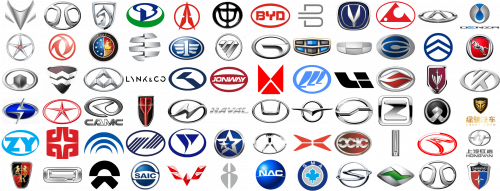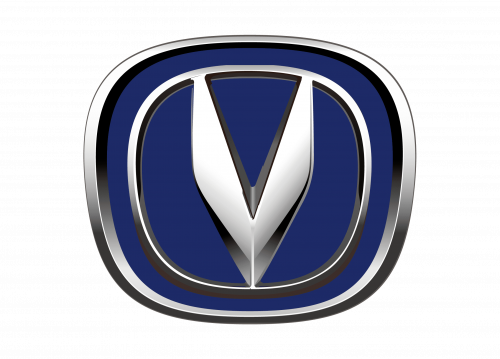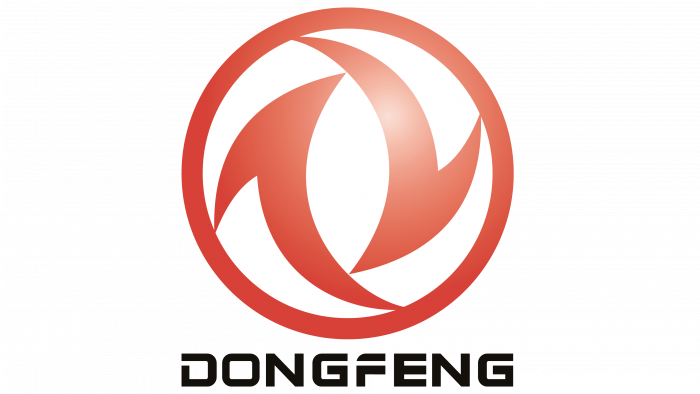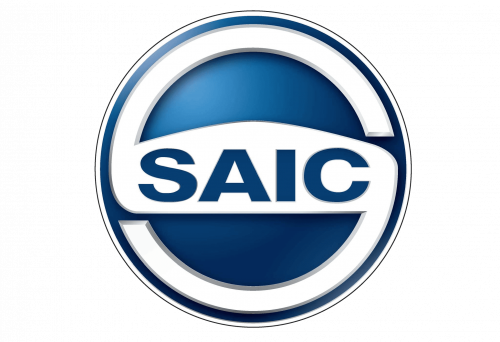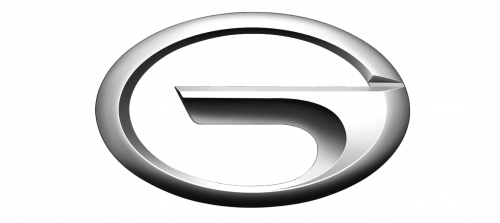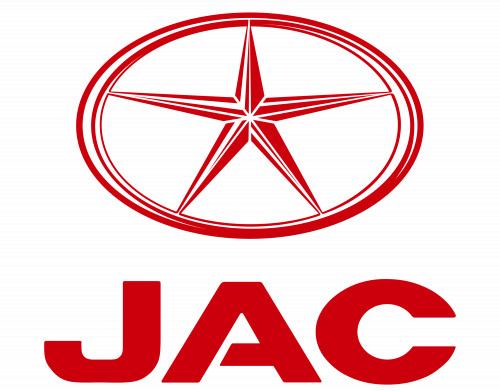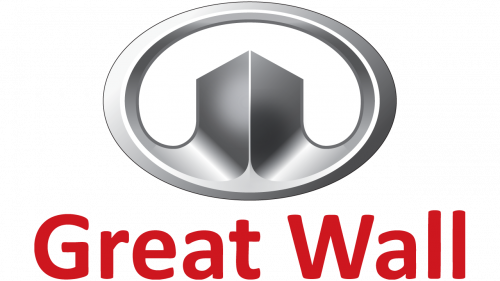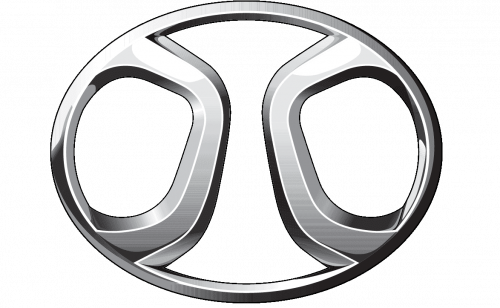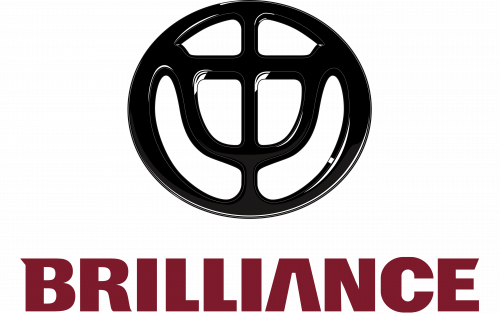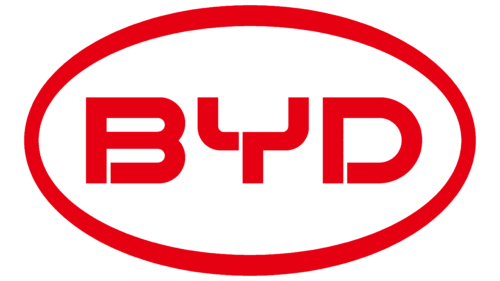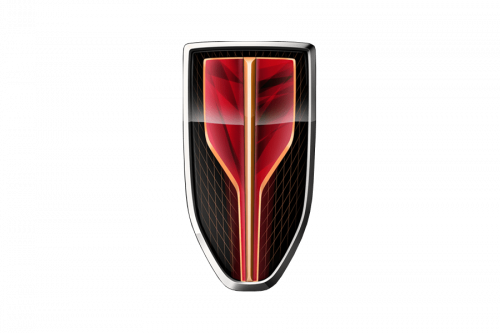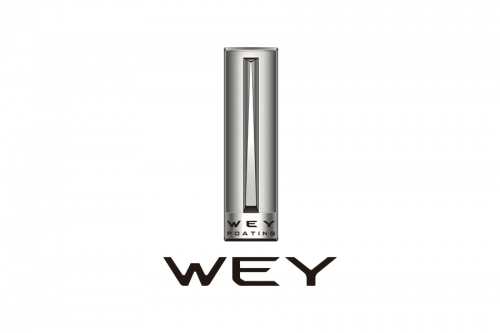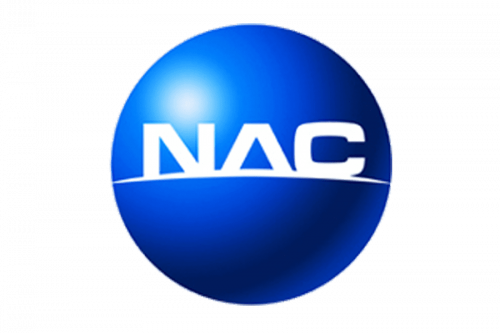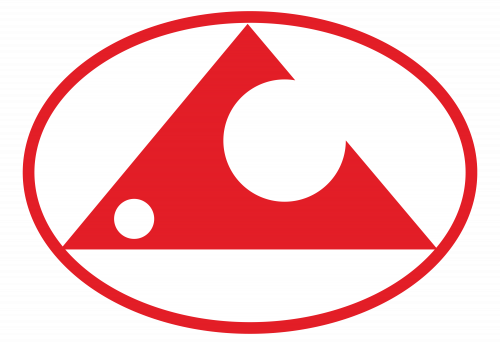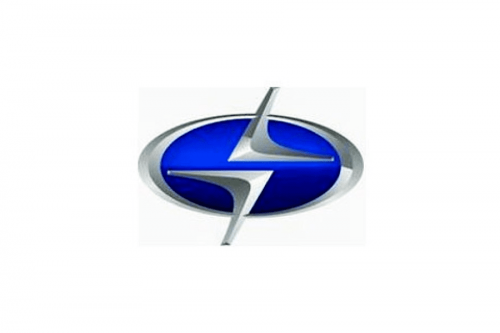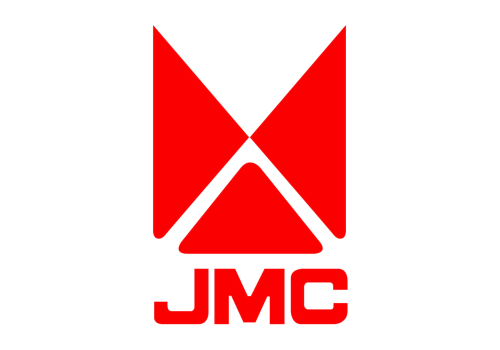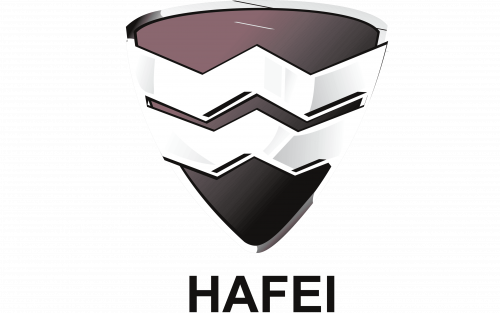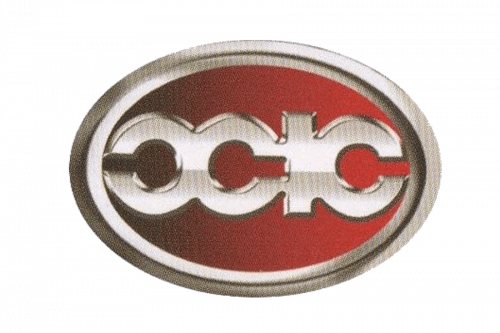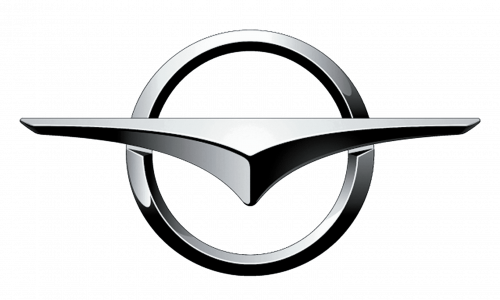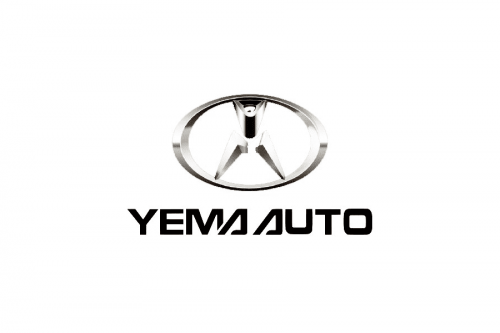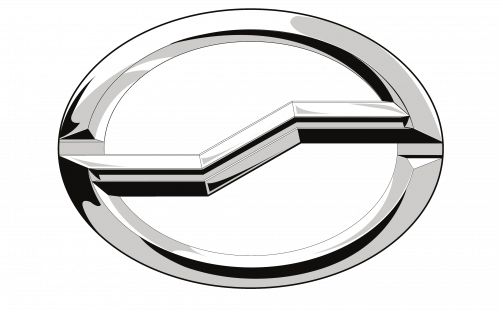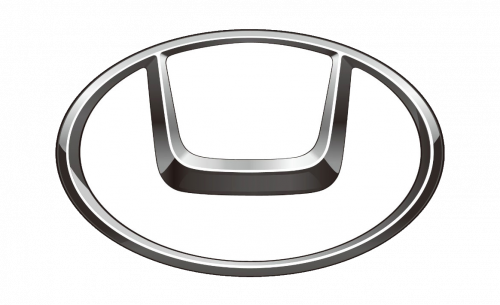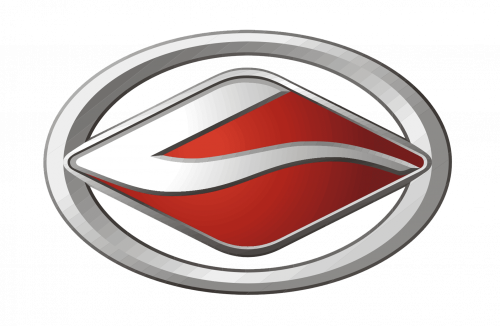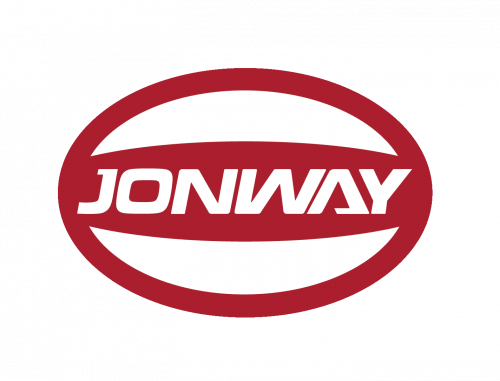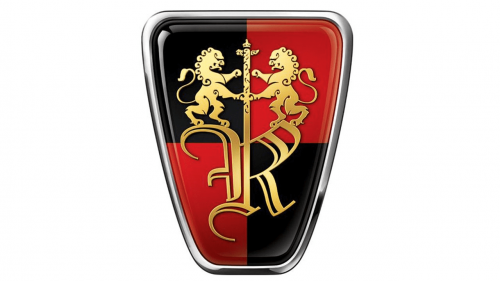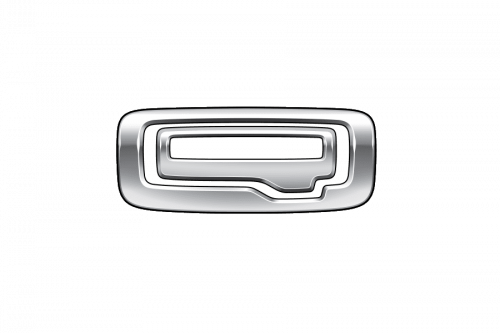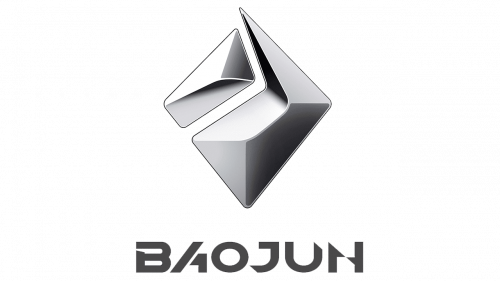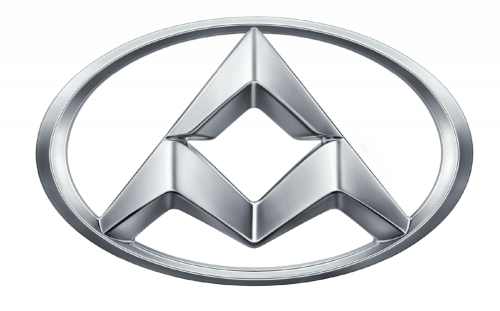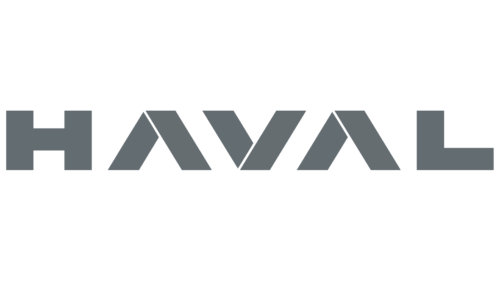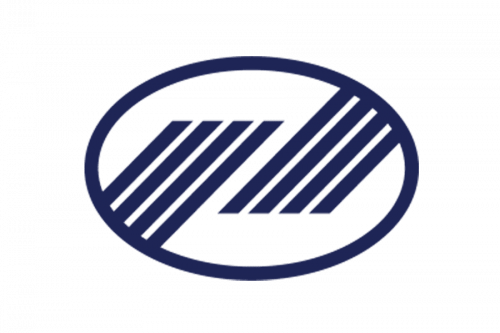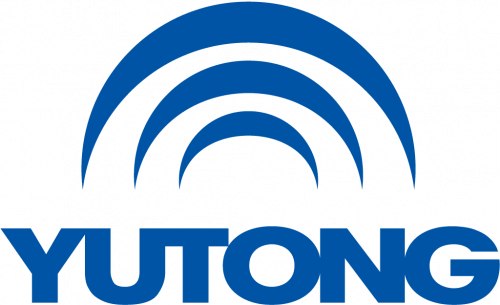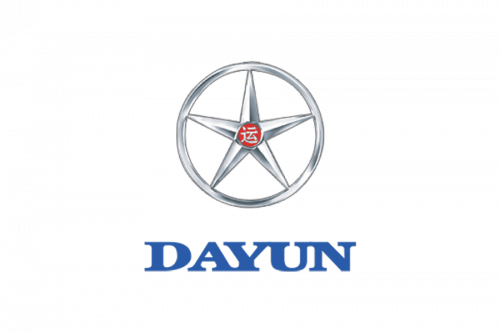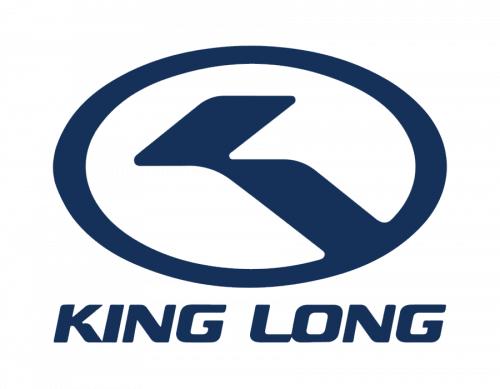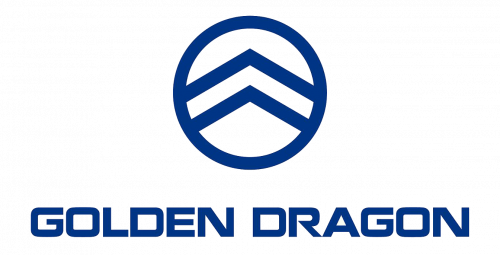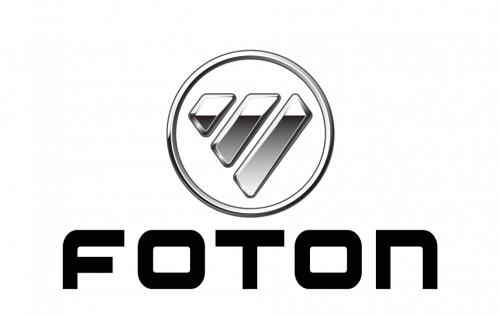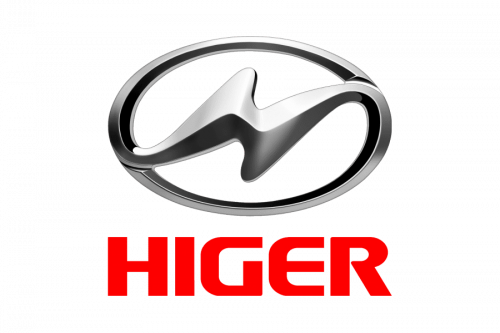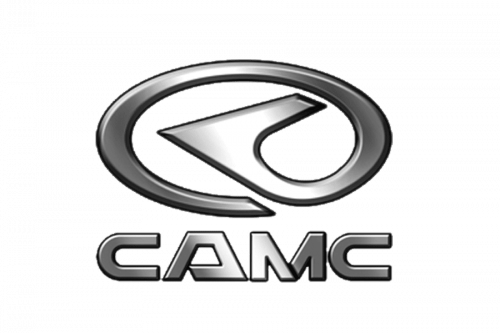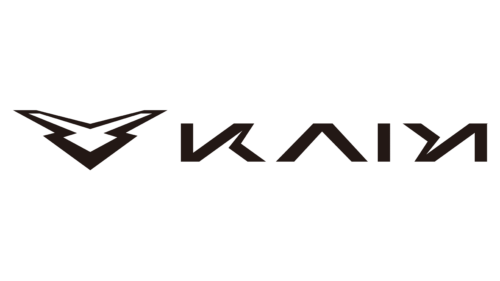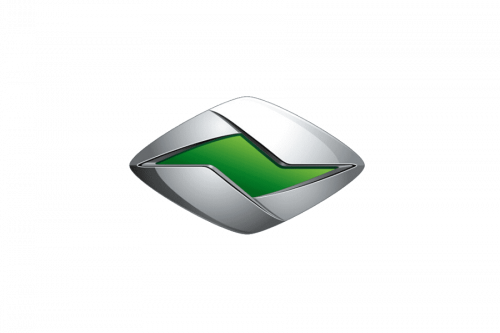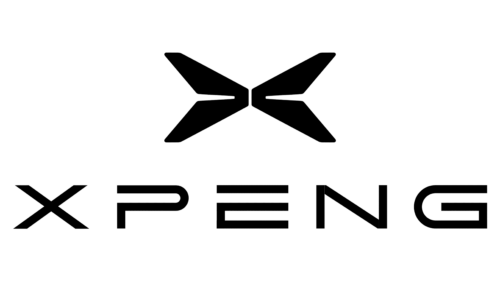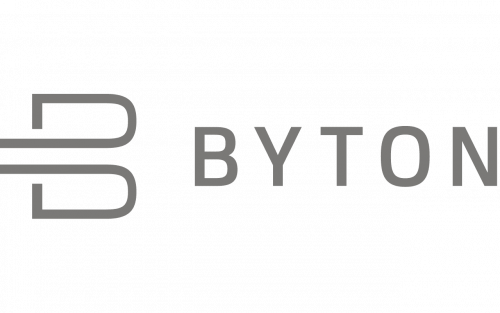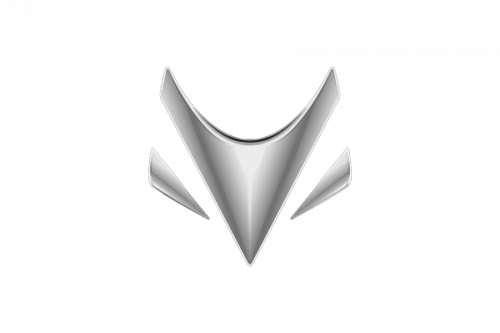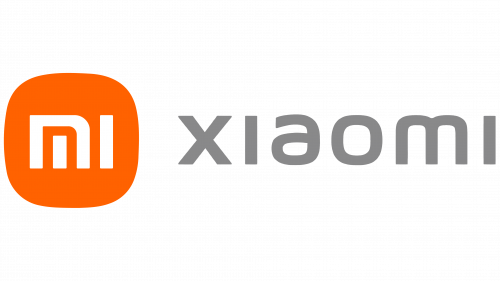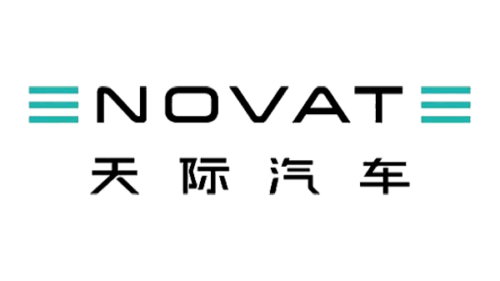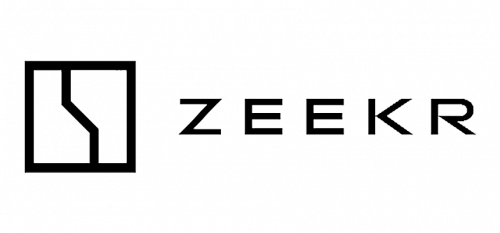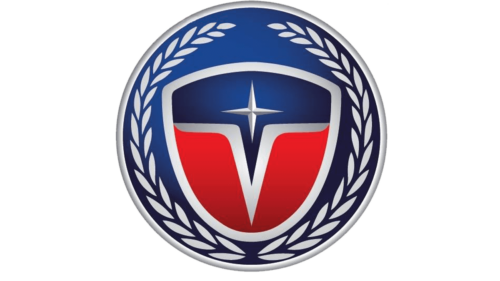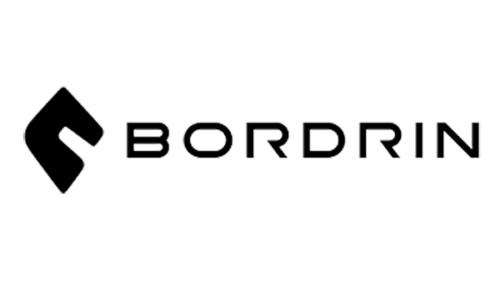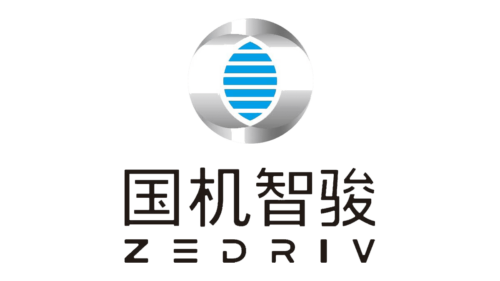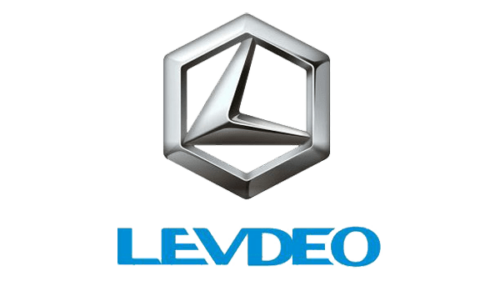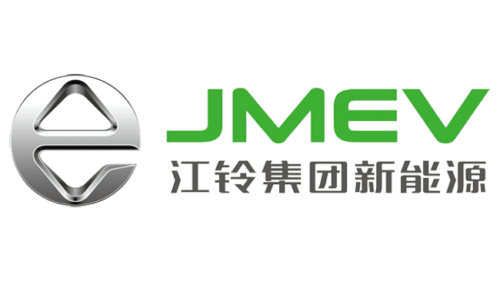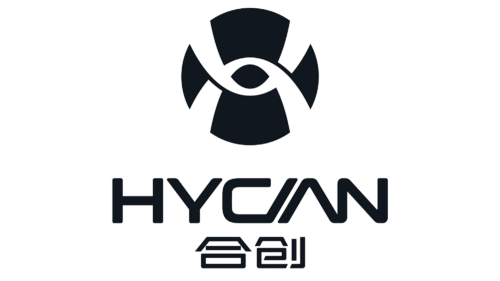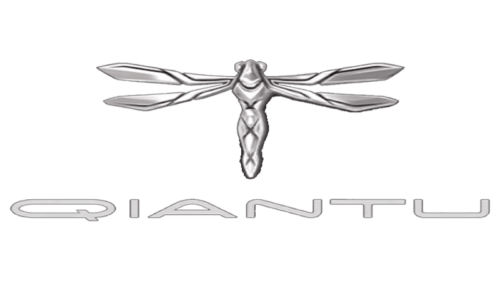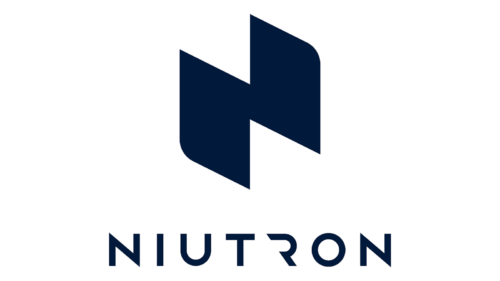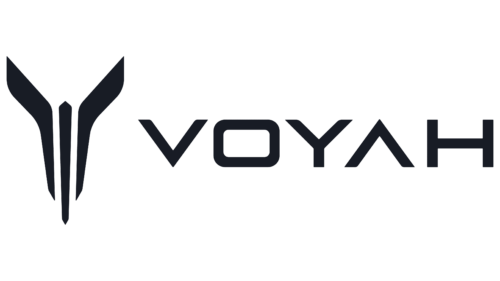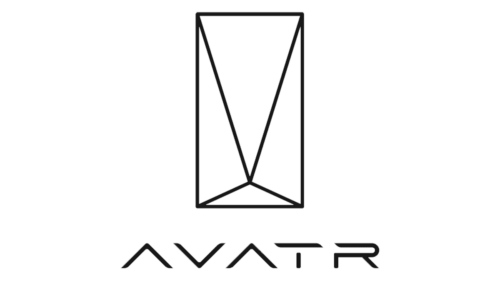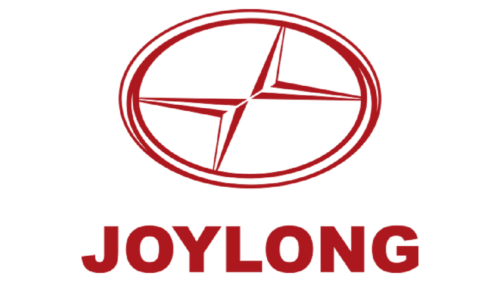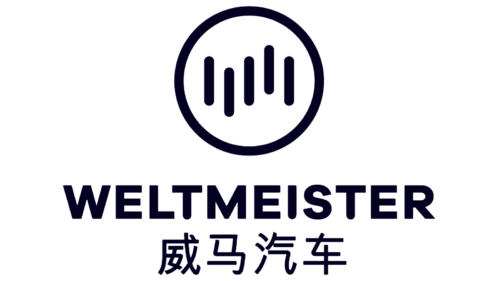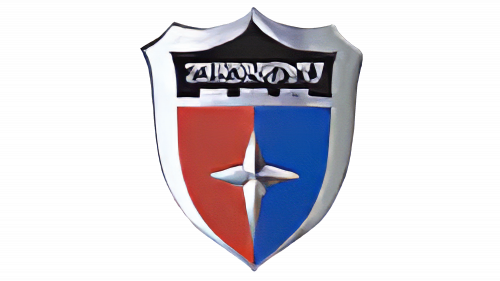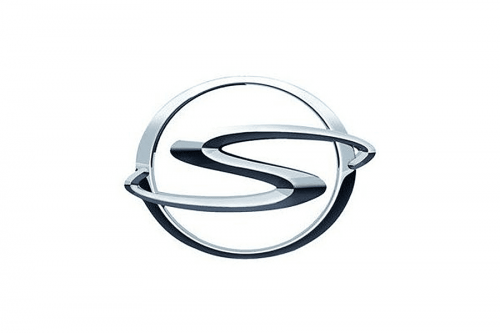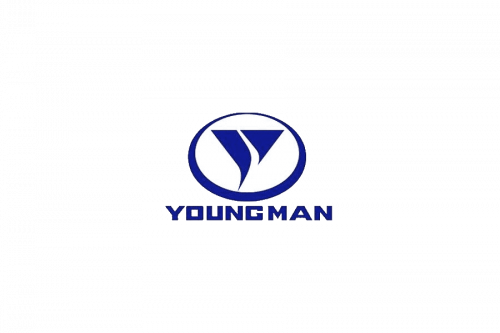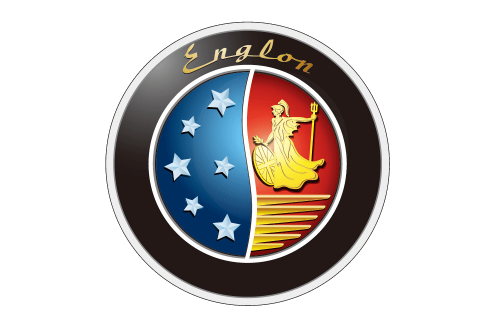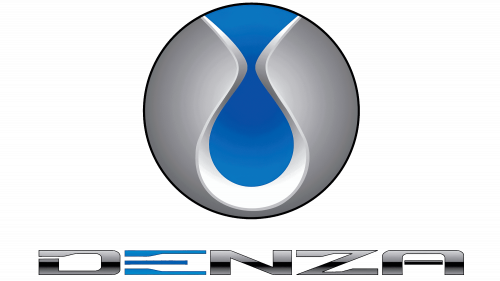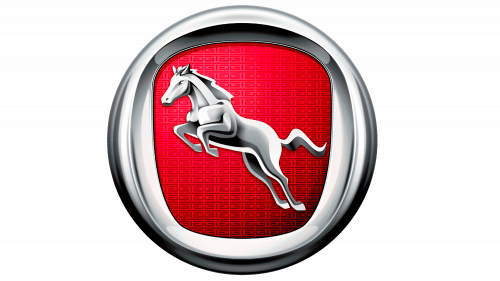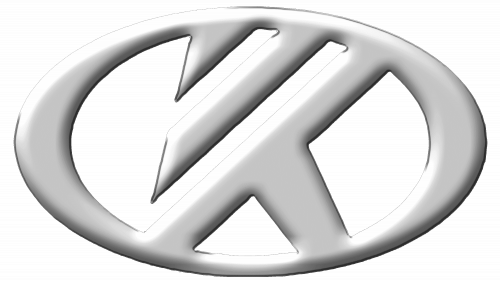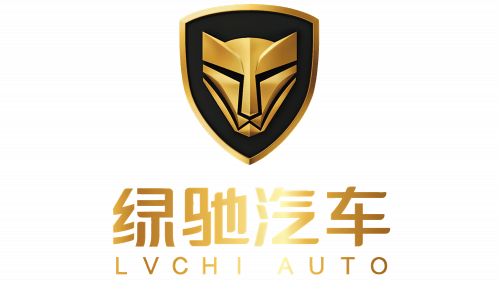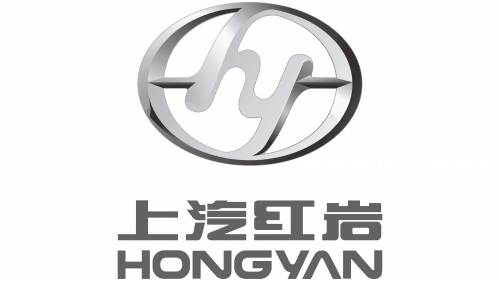The Chinese automaking industry made a real breakthrough on the world’s stage. During the last fifty years of the twentieth century, this Asian country has literally invaded all the region and started a massive distribution of its cars (of many different brands) to Europe, the Americas, and Australia. In terms of the total amount of car brands, China is now second only to all European countries put together.
The Chinese automaking industry has not a very long but very intense and resultative history. Since the early 1990s, it has been developing at a very fast pace. Since 2009, China has been the largest car market in the world and the largest automaker in the world, annually producing more cars in recent years than the next two automakers combined, or more than all the countries of the European Union combined.
China is currently capable of producing a full line of automotive products. The main Chinese companies are FAW, SAIC, and Dongfeng. BYD, Great Wall, Lifan, Geely, Chery, Haval, and Changan are the most popular Chinese manufacturers. According to market experts, these are the best Chinese car brands that contribute to the global automotive industry.
What is the top-selling Chinese car brand?
The Chinese automobile market is growing with incredible speed, introducing new brands, and strengthening the old ones yearly. The export figures of the Chinese manufacturers are very impressive, and they are getting more and more close to the world leaders in sales, which are Toyota and General Motors. The top-selling Chinese car brand today is Geely, which sells almost 800.000 vehicles per year.
The Chinese Big Four
Like “The Big Three” in the United States, China has its top list of manufacturers, which own several popular and successful brands. Some of them work not only in the automotive industry. However, most of the Marques you will see in this article, are owned by one of the Big four companies.
Changan
Founded: 1862
Founder: Private Engineering Corporation
Changan (Changan Automobile Group) is the largest Chinese automobile manufacturer (one of the three largest vehicle manufacturers in China). In translation, “Changan” means “reliability, proven by time. And judging by sales volumes, cars of this brand are appreciated by consumers. Thus, in 2018, the automaker sold 17 million cars.
Dongfeng
Founded: 1968
Founder: Mao Zedong
Dongfeng Motor Corporation is a Chinese state-owned automotive manufacturing company headquartered in Wuhan. It is one of the “big four” Chinese automakers. Dongfeng manufactures cars and commercial vehicles, passenger transport, auto parts, consumables, production equipment for the engineering industry. The load capacity of Dongfeng trucks varies from 500 kg to 220 tons.
The company has created a complete production cycle, independently producing everything – from engines and transmissions to filters and oils. Now it owns 42 plants, the world’s largest testing ground, and enters the Guinness Book of Records for having the longest production line.
FAW
Founded: 1953
Founder: Government of China
FAW Group Corporation (short for First Automobile Works) is also a state-owned manufacturer in China, which mainly specializes in auto parts, light and medium buses, and heavy-duty trucks. And it even has joint ventures with companies such as FAWER, Volkswagen, Toyota, Yangzi, and many others, as well as numerous divisions in Otey, Hongqi, and Besturn.
SAIC
Founded: 1955
Founder: Commission on Oversight and Asset Management of China
SAIC Motor Corporation is a state-owned vehicle manufacturer headquartered in Shanghai, China. The company is among the “big four” Chinese automakers, namely Dongfeng Motor, FAW, and Chang’an Motors. It is famous for producing some of the most economical and luxurious cars in China. SAIC Motor Corporation also has joint ventures with General Motors, Volkswagen, and Volvo.
Large Chinese Automakers
Apart from the Big Four, there are eight more companies, which share almost all the automaking market in the country. They own the world’s most famous brands and work closely with European and American manufacturers, creating collaborative projects and innovative models of cars and motorcycles.
GAC Group
Founded: 1955
Guangzhou Automobile Company, or GAC, is one of the six largest Chinese automakers. The head office of GAC is located in Guangzhou, and factories are located in the industrial centers of the country. The firm started its operations in 1997. GAC became a subsidiary of Guangzhou Automobile Industry Group and production facilities were located at their existing Guangzhou Automobile Plant in China.
JAC
Founded: 1964
Chinese automobile company JAC was founded in 1999. Today JAC is a part of the huge technological conglomerate Anhui Jianghuai Automobile Co. However, production at the factories of this brand began only in 2002, after a long work to prepare production facilities and buy several technologies of foreign automakers, as the corporation was founded on the technical capacities of the existing car plant in 1964 and much of it was outdated. The main specialization of the JAC brand is the production of commercial vehicles, including buses.
Great Wall
Founded: 1984
Great Wall is the name of the large Chinese automaking company, which was established in 1976, and in just 22 years, after its entry into the market has become the largest manufacturer of pickup trucks and commercial vehicles in Asia. The company’s history began with the start of the production of compact trucks to meet the needs of logistics firms. However, generous grants and subsidies from the government allowed Great Wall to expand its lineup.
Geely
Founded: 1986
Geely Group was established in 1986 in China, and its first products were refrigerators. However, when the Communist Party decided to capitalize on the country’s economy, the firm received a powerful push for development. 1992 became for Geely the starting point in the production of vehicles. The firm began producing parts for motorcycles, and two years later has mastered their independent assembly. In 1996 the number of produced motorcycles has exceeded 200 thousand units.
In 1997, the company began to actively promote its products on world markets, opening many branches in different countries around the world and began producing industrial vehicles for Chinese companies.
BAIC Group
Founded: 1988
BAIC, which is deciphered as Beijing Automotive Group, is a government-owned business and holding company composed of several Chinese automaking companies. The group was established in 1958 in cooperation with Daimler AG and Hyundai. In 2011, the firm was the fifth-largest among Chinese automakers, and in 2012 it ranked fourth in terms of output, producing 3.1 million finished cars.
Brilliance
Founded: 1992
Brilliance Auto Group is a holding company that unites several car manufacturers. It occupies 7th place in the ranking of the largest car manufacturers in China.
The company’s automotive division includes enterprises for the production of cars and trucks, passenger vehicles, special-purpose vehicles, the design of parts and units, as well as a large engineering and research institute. Brilliance Auto Group is the first automobile company in China, which has long been closely cooperating with the German concern BMW and is a strategic partner.
BYD
Founded: 1995
BYD Auto is a subsidiary of BYD Company Ltd, specializing in the production and supply of various types of equipment for the automotive and other industries. Initially, the plant was to produce batteries, and its staff consisted of 30 employees. But with the decision in 2003 to reorient the company to the production of cars, its staff grew to 40 thousand people. New technologies became the basis for the production of cars at BYD plants.
Chery
Founded: 1997
One of Asia’s largest automobile companies, Chery, was established in 1997 by the Government of China. Initially, the brand was engaged in the creation of power units for other automakers, as well as for military and aviation equipment. However, in 2001, having the license to manufacture complete units for the assembly of automobile brands such as Toyota and Mitsubishi, the company released its first car.
The company’s first model, called Chery Amulet, was a copy of the Seat Toledo, which the Chery brand management planned to assemble in China under license from Volkswagen, but received a tough rejection. So, simply, having bought several samples and thoroughly studied them, the company’s engineers introduced the Amulet model, which was not only similar to the Spanish competitor but also had the same set of options.
Luxury Car Brands
It might be surprising, but there is a list of Luxury car brands in China too. It is pretty short, but the cars of these three companies can compete with European and American high-end vehicles in both style and comfort. Of course, the mass-market car brands are still in the leading positions in the country, however, lux brands have become more and more popular and not only in China but all over the globe.
HongQi
Founded: 1958
Founder: FAW
HongQi is a Chinese luxury car brand owned by FAW Car Company, a subsidiary of FAW Group. HongQi were the first passenger cars produced in China. First produced in 1958, the original HongQi models were reserved for high-ranking party members. They remained in production until 1981. Subsequently, the lineup was significantly expanded, and the former elite brand began to produce cabs and business sedans.
Lynk&Co
Founded: 2016
Founder: Geely, Volvo
Lynk&Co is the name of a young project founded in 2016 by the joint efforts of Chinese Geely and Swedish Volvo, which specializes in the development of “smart cars.
Lynk&Co is focused on young audiences, ecology, fashion, and mobile technology. The creators of the new brand say that they tried to get away from the traditional names, so the firm was named Lynk & Co. “Lynk”, as a striking version of the “link”, reflects the main value of our time – connection, and “Co” – the “cooperation”.
WEY
Founded: 2016
Founder: Great Wall Motors
The Chinese auto giant Great Wall Motors announced the emergence of the Wey brand at the end of 2016, and in 2017 it showed the first production cars. There are now four different models in the company’s portfolio. The flagship is the Wey P8: 340 hp and 524 Nm of torque – these are the totals of the hybrid power plant with the ability to recharge from the mains. The cruising range of electric power is up to 50 km. Acceleration from 0 to 100 km/h – 6.5 seconds.
According to one version, the company is named after the chairman of Great Wall Motors, whose name is Wei Jianjun. According to another, it is named after the ancient Chinese kingdom or princedom Wei.
Mass-Market Car Brands
The automobile industry in China is quite young when it comes to its international experience. But in a short period, Chinese companies have managed to make a huge step forward. In many ways, the result of their work can be called a breakthrough and a small revolution in the world of automotive engineering. It is the cars from Celestial Empire are the most affordable, they are richly equipped in basic configurations, and the appearance actively aspires to the level of world leaders. Every year new brands and models of mass-market cars appear in China — affordable, easy to operate, and comfortable.
Nanjing Automobile Corporation
Founded: 1947
The state-owned Nanjing Automobile Corporation is China’s oldest automobile manufacturer. It was established in 1947, and since then has been taking the leading positions on the Asian market. The portfolio of the brand includes not only passenger cars but also buses and trucks. In 2007 Nanjing Automobile Corporation merged with SAIC, another automaking monster, and became its subsidiary.
ChangFeng
Founded: 1950
ChangFeng is one of the oldest car manufacturing companies in China. It was founded in 1950 and in the first years of its existence the company was engaged in the creation of military vehicles and heavy machinery for special purposes. Only in 1980, with extensive experience in creating off-road military vehicles, ChangFeng brand presented its first civilian model off-road, which was named CJY620. And in 1993 a cooperation agreement was signed with the Japanese company Mitsubishi, which has provided the Chinese company the rights to manufacture one of its off-road models. Until 1996, the company was also a commercial branch of the People’s Liberation Army.
Jiangnan
Founded: 1952
Jiangnan is the name of a Chinese company, which was established in 1952. It is a key member of the China Weapon Industries Group. In 1988, the company began producing passenger cars, producing a miniature model JHN 710. Since the early 1990s, it also produced under license the model Suzuki Alto, which is also a mini-car. Others were developed, but Alto is still one of the main products of the company.
JMC
Founded: 1968
JMC is the name of a Chinese company that produces trucks and cars, passenger vehicles, as well as SUVs. Established in 1968, originally, the company was called Jiangxi Automobile Manufactory. At the beginning of its history, the company produced small trucks, under the brand name Genghis Khan. JMC company was founded based on an auto repair plant, located in Nanchang city. Since the early eighties, this company has received the right to produce components and cabins, designed for Isuzu trucks. In 1984 the company switched to the licensed production of Isuzu brand models.
Hafei
Founded: 1980
Hafei is the name of another Chinese car manufacturer that was founded in 1980. Today, the company is part of the Harbin Corporation. A key factor in opening a new brand was the conclusion of an agreement with the South Korean concern Daewoo, which in addition to technology, invested a large sum to open the highest class assembly workshops, and at first, the factories of Hafei worked exclusively seconded specialists Daewoo.
XinKai
Founded: 1984
XinKai is the name of an automobile manufacturing corporation, established in 1984. It is engaged in the production of cars and trucks, as well as special equipment. At the time of its founding, Xin Kai Company was a joint venture with foreign participation in the capital. In 1992 a company from Hong Kong joined the owners of the brand. With the development, the company got its production facilities, as a result becoming a corporation. In 1999 its official name was Xin Kai Auto. The company’s motto is “Quality is life”.
Jinbei
Founded: 1991
Jinbei is the name of the automaking brand, which was established in 1991 by one of the largest Chinese players in the automobile market, Brilliance China Automotive. Together with the German BMW, Brilliance Automotive Group produces BMW cars specifically for the Chinese market. Besides, it has its own brand Zhonghua, which produces Hi-Ace minibusses, and Jinbei, which specializes in the production of light-duty trucks and commercial vehicles. The firm produces minivans under the brand names Jinbei and Granse, based on the development of the Japanese Toyota, which was transferred to the company under an agreement on technical cooperation.
Lifan
Founded: 1992
Lifan is the name of one of the most famous Chinese car manufacturers, which was established in 1992. Today it is known as a brand of budget cars, but its first activity was the repair of motorcycles, and its name was Chongqing Hongda Auto Fittings Research Centre. After some time, gaining experience, the company took the risk to start producing its own motorcycles, and it did not go wrong. Thanks to the low cost, the motorcycles, the company became very popular in China, and after only 5 years, it already owned ten of its own plants. In 1997, the management decided to change the name to what we know it by now, Lifan.
Haima
Founded: 1992
Haima is one of the fastest-growing automaking brands in China, which is controlled by the FAW Group. This manufacturer has all the necessary infrastructure, due to which it designs, manufactures, and sells passenger cars, Crossovers, vans, and electric cars. Haima traces its history back to 1988, originally the company was called Hainan Motor, and was engaged in the production of old car models. However, in 1992 the company signed a partnership with Mazda Motor and received its present name (formed from the first letters of the words “Hainan” and “Mazda”).
Yema
Founded: 1994
Yema is the name of a Chinese vehicle manufacturer, which was established in 1984 and since 2002 has been producing buses and cars under the same brand name. Today Yema has three production bases located in Chengdu and Mianyang: the headquarters in Chengdu, a branch in Chengdu, and a branch in Mianyang. The Chengdu headquarters includes the units of Passenger Vehicle Co. and Chengdu Bus Co., which produce buses, commuter buses, city buses, passenger vehicles, including SUVs and MPVs, and eco-friendly vehicles.
Soueast
Founded: 1995
Soueast is a Chinese car manufacturer, which was established in 1995. The company’s main specialization is the production of Japanese Mitsubishi cars, adapted to the needs of Chinese buyers. Besides, since 2006, the Japanese brand is among the co-owners of the firm, having 25% of the total shares.
In addition to licensed production, Mitsubishi is a global technology partner of Soueast. In 2008 the Iranian company Mehergan became one of the partners of the brand, which launched a full-scale production of Mitsubishi cars for the Iranian market, using the components that are produced in Soueast plants.
ZXAuto
Founded: 1999
ZXAuto is the name of a joint Chinese-Korean project, launched in 1999 as a separate brand for the production of city cars by Hebei Tianye Automobile Group and Taiwan Unite Leading in China. The company began to rapidly gain momentum and in a few years has become a leader of the Chinese automobile industry, choosing to produce pickups and SUVs, bringing their creation to perfection, both technically and in design.
Hawtai
Founded: 2000
Hawtai is the name of a Chinese automaking brand, which is not very recognizable across the globe. Established in 2000, Hawtai is positioned in China as a premium car brand. The technical partners of Hawtai Motor Group are VM Motori, SAIC, and manufacturers from Germany: ZF Friedrichshafen AG, Bosch, ZF, Intel, Magna, Pier burg, Honeywell.
Landwind
Founded: 2002
Landwind is the Chinese automobile company owned by Jiangling Motor Holding, a joint venture of Changan Auto and Jiangling Motors Corporation. The brand, which was established in 2002, and released its first car (SUV X6) in 2006, specializes in the development and manufacture of passenger cars and SUVs and considers the local Chinese market to be its key market.
Wuling
Founded: 2002
Founder:
The Chinese automaker Wuling has been known in the car market since 2005.l, though the brand was established in 2002. In the range of the company, there are several lines of vans, flatbed vehicles, and mini-cars. Wuling has its own engine plant, which makes the company independent from external supplies. The company pays great attention to new developments, following global trends, and using the latest science to produce quality vehicles.
Gonow
Founded: 2003
Gonow is the name of a young Chinese automaking brand, which was established by Zhejiang Gonow Auto in 2003, and specialized in the production of minivans, pickup trucks, and SUVs, as well as vehicles for the Chinese army, police, and government agencies. The first pickup model was released in 2004 and immediately began deliveries to Africa and Europe, and a year later the company signed a cooperation agreement with the Korean company Daewoo.
Zotye
Founded: 2003
Zotye is a Chinese manufacturer of sedans and city cars, which was established in 2003. Since the foundation, Zotye has released several series of hatchbacks and sedans in different configurations.
Also, the company tried to set up the production of electric cars in 2008, but after a few experimental models have opted for traditional gasoline-powered cars. One of the curious features of Zotye is their affordable budget, achieved by the company due to optimization of production facilities, which are designed for the production of 100 thousand cars a year.
Jonway
Founded: 2003
Honest is the name of a relatively young automaker, which was founded in 2003 in China. Today it produces up to 30 thousand cars and SUVs annually. The Jonway dealer network includes more than 500 dealers in China. Its cars are also exported to Italy. For example, the SUV Jonway UFO, produced in China since 2007, is a licensed copy of the second-generation Toyota RAV4.
Roewe
Founded: 2006
Roewe is the name of a luxury brand of the Chinese automobile concern SIAC, which was established in 2006, taking its name in honor of the British brand Rover, or rather, for greater consonance with it. However, the Roewe vehicles were developed with the participation of engineers from Ford, which had acquired the Rover brand a year earlier from BMW.
Qoros
Founded: 2007
The company Qoros Auto was founded in 2007, and at the end of 2013 began production of the first model – Qoros 3 sedan, a car designed primarily for the European market. The brainchild of one of China’s largest automakers, Chery, Qoros is rapidly developing, applying the latest technology in its cars and expanding its export market.
Everus
Founded: 2008
Everus is a small automaking brand, which was established in China in 2008, as a joint venture between the Japanese Honda Group and the Chinese GAC. The first car of the brand saw the light in 2011 and got pretty good feedback from the world automotive community.
Venucia
Founded: 2010
Venucia is the name of a young and progressive automaking brand, which was established in 2010 as the joint-venture between the Japanese Nissan Group and Chinese Dongfeng. The brand is specialized in the production of stylish and comfortable passenger cars and SUVs and pays attention to details in the design and technical stuffing of its vehicles.
Baojun
Founded: 2010
Baojun is the name of a Chinese car brand, which was established in 2010. The young company specializes in the production of small affordable vehicles. SAIC-GM-Wuling Automobile’s production has made it possible to establish stable production of Baojun cars.
Maxus
Founded: 2011
Maxus is the name of the car manufacturing brand, which was established in 2011, by Shanghai Automobile Company, one of the largest automakers in China. The giant decided to create a new brand for the production of commercial vehicles, and this is how the Maxus was born. This line of vehicles was designed to replace the outdated rear-wheel-drive LDV Pilot and Convoy. After the purchase of Daewoo by General Motors concern, the LDV Group company retained all intellectual rights to develop Maxus.
Haval
Founded: 2013
The Haval car brand was registered by the Chinese company Great Wall in 2013. Initially, it was planned to produce production SUVs for the domestic market under this name. Since 2014, it has taken control of the production of all vehicles of the passenger class, except for the compact cars.
Commercial Vehicle Brands
Almost 50% of all buses and large commercial vehicles sold in the world are produced in China. The country has several large and reputable brands, which have been on the international market for quite a long time, and proved themselves as reliable and professional brands, which can be developed and implement progressive and innovative technologies in their manufacturing processes. Our list of Commercial Vehicles Brands includes not only busses but also truck manufacturers from China.
Yuejin
Founded: 1947
Chinese truck manufacturer Yuejin Automobile Corp. is controlled by Nanjing Automobile Corporation (NAC). The company was founded in 1947, and the first truck was produced in 1958. It was a light-duty truck. At present, Yuejin is among the leaders in the production of small trucks in China.
Currently, the brand Yuejin produces agricultural machinery, as well as chassis used for the production of trucks and cars. The model range of the brand includes five sub-series of light-duty trucks and twenty-seven basic modifications.
FAW Jiefang
Founded: 1957
Founder: First Automobile Works (FAW)
FAW Jiefang is one of the largest and oldest Chinese manufacturers of trucks, which was established in 1957. With the help of the main plants and operating branches, it manages to produce vehicles of six categories: trucks of different payloads, SUVs, cars, small cars, and buses. FAW is second only to Shanghai Automotive Industry Corporation (SAIC) in terms of sales. As for the trucks segment, FAW takes leading positions not only in the Chinese market, but in all Asia, and moving to the world’s pedestal.
Zhongtong
Founded: 1958
Zhongtong is the name of the oldest Chinese bus manufacturing company, which was established in 1958. Today, in addition to producing three series of buses, Zhongtong also repairs buses and produces spare parts. Touring, city, and other types of vehicles are sold not only in China but to many countries around the world, including France, the USA, Russia, and others.
The company has experienced reorganization several times, as well as the change of management and name change, before finally in 1998 to get the current name Zhongtong.
Yutong
Founded: 1963
Yutong is another Chinese automaker, which was established in 1963 but got its international popularity only in 2004. The company, located in Henan Province (Zhengzhou), specializes in the production of buses of various types and purposes. In several model lines, Yutong produces dozens of modifications for various climatic and road conditions. It allows the export of buses to more than 30 countries around the world. The range of passenger buses is quite extensive.
Dayun
Founded: 1987
Another Chinese manufacturer of commercial vehicles, Dayun was founded in 1987, and in a short time has achieved a large scale of production, recognition in China, and fame in the world. The factory is located in Shanxi province (central China), in a designated area. It is a special industrial production development zone, investments are actively attracted in the development of advanced technology facilities. There are centers and complexes for the development of innovative solutions, for scientific and test research.
King Long
Founded: 1988
King Long was founded in 1988 and quickly became one of the largest bus and commercial passenger vehicle manufacturers in China and Asia. In the early years of its existence, the King Long brand cooperated closely with several Japanese and Korean companies, gradually building its design team and constantly improving its production capacity. In 1989, production of Toyota commercial vehicles under the brand name King Long began, and in 1991, a similar decision was made for the products of Hyundai.
BeiBen
Founded: 1988
Founder: NORINCO Defense Corporation
BeiBen is a truck manufacturer from Baotou. Founded in 1988 under license from Mercedes-Benz, it works mainly for the Asian market. Bei Fang Ben Heavy-Duty Truck Co., Ltd. is deservedly considered a leader among the machine-building companies in China. Advanced and modern equipment, a competent management system, and professional staff allow the plant to provide the domestic market with reliable equipment, as well as export it to many countries of Asia and the Middle East.
Golden Dragon
Founded: 1992
Founder: Xiamen Golden Dragon Bus
Xiamen Golden Dragon Van, or simply Golden Dragon, was established in China in 1992. This company, located in Xiamen, Fujian Province, covers a huge area of 300 thousand square meters, and the area of the main production facilities is equal to half of it. The main activities of the brand are the development, production, and sales of urban, suburban, and tourist buses, which are designed to carry from 9 to 120 passengers. The Golden Dragon buses are sold not only in China but exported to many countries.
Foton
Founded: 1996
Founder: BAIC Group
Foton is a Chinese truck manufacturer, which was founded in 1996 as a small concern for the production and development of vehicles of different directions. However, in 1997 the concern became a separate subdivision of the Foton brand, which specializes in the production of trucks and special equipment for the domestic market. The first company’s models were copies of famous at that time in the Asian automobile market Japanese and Korean trucks, which originally were to be produced under license at Foton plants.
Higer
Founded: 1998
Founder: King Long
Higer is the name of a Chinese bus manufacturer that was founded in 1998. Today, the company specializes not only in the production of buses but also in trucks. Immediately after the founding of the brand, increased interest in the capacity of its plants and a new market showed the Swedish Scania, which has invested in the Chinese production of a solid amount, while purchasing 10% of the firm.
Hualing Xingma
Founded: 1999
Hauling Xingma, a truck manufacturer, founded in China in 1999, is better known in the world as CAMC. Chinese trucks CAMC brand is produced by Anhui Hualing Automobile Group, a large engineering holding in Anhui province. This corporation has three companies – Xingma Automobile, Anhui Hualing Heavy-duty Automobile (also known as Hualing Heavy Auto), and Hunan Xingma Heavy-Duty Truck Co, (briefly – Hunan Xingma). The production capacity of all three plants is about 30 thousand CAMC heavy trucks per year. The company’s main partners are well-known Japanese truck manufacturers — Mitsubishi and Isuzu.
Jetour
Founded: 2018
Owner: Chery
Jetour is an automotive brand renowned for its manufacturing excellence in China, where it combines cutting-edge technology with sophisticated design principles. Key features of Jetour vehicles include advanced safety systems, cutting-edge connectivity options, and a focus on eco-friendly technologies. The brand stands out for its blend of modern aesthetics with functional durability, making it a popular choice among those seeking a harmonious balance of style and practicality in their vehicles. Each model in Jetour’s lineup showcases a commitment to innovation and quality, ensuring a driving experience that is both enjoyable and reliable.
Exeed
Founded: September 14, 2017
Owner: Chery
Exeed, an emerging automobile brand, distinguishes itself with its state-of-the-art manufacturing facilities located in the heart of China’s industrial sector. Renowned for integrating cutting-edge technology with sophisticated design, Exeed cars epitomize a fusion of luxury and performance. Key features of this brand include advanced safety systems, innovative connectivity features, and environmentally-friendly powertrains, offering a glimpse into the future of automotive excellence. With a commitment to quality and innovation, Exeed is poised to become a significant player in the global automotive market, catering to consumers who seek both luxury and reliability in their vehicles.
Kaiyi
Founded: January 2014
Headquarters: Yibin, China
Founders: Chery Automobile
Kaiyi emerges as a distinctive voice in the automotive world, particularly within China’s competitive market, by targeting an often-overlooked segment: affordable yet feature-rich vehicles. This brand distinguishes itself through its dedication to delivering vehicles that strike an exceptional balance between cost-effectiveness and a surprisingly robust set of features. Kaiyi cars are noted for their efficient performance, comfortable and thoughtfully designed interiors, and a commendable suite of technological features, which are particularly impressive given their price range. The brand’s ethos centers around meeting the practical demands of everyday drivers, offering vehicles that are both reliable and aesthetically pleasing. In a market where affordability often comes at the expense of quality and features, Kaiyi stands out by providing vehicles that challenge this norm, offering an attractive proposition for budget-conscious consumers who seek a blend of functionality, comfort, and modernity without a hefty price tag.
Electric Car Brands
Speaking about the Chinese car industry as a whole, it is, of course, a segment of inexpensive cars with low safety performance, in the creation of which design solutions and technical developments of foreign automakers are widely used. However, recent years have been marked by innovation and new technologies, as evidenced by the emergence in China of a large number of car brands specializing in the production of electric cars.
In China, the electric transport industry is developing faster largely because of the difficult environmental situation: the Celestial Empire leads in the volume of hydrocarbon emissions into the atmosphere. China is investing more in infrastructure development.
Zinoro
Founded: 2013
Founder: Brilliance, BMW
Zinoro is a joint venture of BMW Brilliance, which specializes in the production of electric luxury cars. The brand was established in 2013 and released its first model in the same year. The Zinoro pioneer, introduced in 2013, was the Zinoro 1E electric crossover based on the BMW X1 was presented. And in 2016, the Zinoro 60H SUV based on the BMW X1 Long Wheelbase was presented.
Ranz
Founded: 2013
Founder: First Automobile Works (FAW), Toyota
A very ambitious and progressive project of the Chinese FAW and Japanese Toyota, Ranz, was established in 2013 with the idea of electric vehicle production. The company didn’t need much time to start actively developing and released its first car in the same year. Translated as the “Bright Light”, Ranz’s main principle is to provide young and active people all over the world with affordable and high-quality electric cars.
Singulato
Founded: 2014
Founder: Zhiche Youxing Technology
Singulato Motors is a brand of Zhiche Youxing Technology, which was established at the end of 2014 in Beijing as an Internet company to produce Chinese electric cars, autonomous driving systems, automotive network services with a focus on big data development and cloud computing technology.
The Chinese startup has received 15 billion yuan, or $2.39 billion, in investment to build a factory and produce its first electric crossover model. In 2016, the company showed a spectacular crossover with so-called “gull-wing” doors.
NIO
Founded: 2014
Founder: William Li
The NIO car brand is a private industrial company created by William Li in 2014, with the idea of design and developing high-tech electric cars. The brand unites more than 2,000 specialists in design, high-tech, and management in 13 countries. Its headquarters is located in Shanghai, China, and representative offices are opened in the USA, Germany, England, and Hong Kong.
The name NIO is a trademark developed for the American and European markets, the original Chinese brand name is Weilai, which literally means “blue sky.
XPeng
Founded: 2014
Founder: He Xiaopeng
XPeng, or Xiaopeng Motors, was established in China in 2014 to launch production of its budget electric cars based on the American company’s developments. Three years later, XPeng released a beta version of its first car, the Identity X electric parkcar. However, in January 2018, the company improved the development and demonstrated the G3 crossover at the CES show in Las Vegas. According to the creators, they got nothing but an “internet electric car,” and the letter G in the car’s name stands for the English word “geek”. The brand is often compared to the American Tesla.
Li Auto
Founded: 2015
Founder: Li Xiang
Li Auto is another ambitious Chinesenproject, which was launched in 2015. Like NIO, Li Auto produces only crossovers, the most sought-after body type. Li Auto has only one car model so far – the large six- or seven-seat car LI ONE. Sales of the car began in the spring of 2019, and the company has already produced more than 10,400 vehicles, as of June 30, 2020. In the first quarter of 2020, Li Auto had revenue of $120.3 million and a net loss of $10.9 million. All products are sold in the Chinese market, and the company plans to expand its lineup in the future.
Byton
Founded: 2016
Founder: Harmony New Energy Auto, Hon Hai Precision Industry, Tencent Holdings
The Chinese electric car brand Byton debuted in 2016. It is a trademark of the startup Future Mobility Corporation (FMC), which was founded by people from BMW and Nissan. FMC has Chinese funding, so it is headquartered in Nanjing, but there are also R&D centers in Munich and California. The company unveiled its first electric crossover concept in 2018, which immediately caught the interest of the global industry.
Arcfox
Founded: 2017
Founder: Beijing Automotive Industry Holding
Arcfox is an electric car brand, established in 2017 by the BAIC Group, the fifth-largest company in the Chinese car industry. BAIC cooperates closely with automotive industry leaders such as Hyundai and Mercedes-Benz. The Arcfox electric crossover is the joint brainchild of a separate BAIC division, BJEV (which fully owns the Arcfox brand), and Canadian automotive component manufacturer Magna International.
Geometry
Founded: 2019
Founder: Geely
The Chinese company Geely, which owns Volvo, Polestar, and Lotus brands, announced the launch of a global brand Geometry in 2019z geometry was established with the idea of premium electric cars production. The first model of the brand is the sedan Geometry A. The size of the four-door Geometry debutant is close to the Tesla Model 3, though the Chinese version has some interesting modifications and features.
Aiways
Aiways is an automotive startup founded in 2017 by Fu Qiang, former Volvo and Infiniti executive, and Gu Feng, former head of SAIC Motor. Based in Shanghai, China, Aiways has focused on developing intelligent electric vehicles and has achieved notable milestones, such as introducing the U5 SUV, their first model designed for the European market. The company made headlines when it completed a landmark 15,022-kilometer road trip from China to Germany with the U5, showcasing the vehicle’s durability and the company’s technological prowess. As of the start of 2023, Aiways continues to expand its presence, especially in Europe, aiming to solidify its position in the competitive electric vehicle market while committing to innovation and sustainability in mobility.
Xiaomi
Xiaomi Corporation, founded by entrepreneur Lei Jun and a team of co-founders in April 2010, stepped into the automotive industry with the announcement of Xiaomi Auto in March 2021. Since its inception, Xiaomi has been known for its wide range of electronics, and the expansion into automotive represents a significant diversification. Xiaomi Auto has made strides in the electric vehicle (EV) market, with substantial investments pledged for the next decade, aiming to compete in the increasingly crowded field of tech-company-backed EVs. In its journey, Xiaomi has focused on smart electric vehicles, planning to integrate its expertise in artificial intelligence and Internet of Things (IoT) into its automotive technology. As of now, Xiaomi Auto is progressing in its mission to develop its EV segment, with a reported completion of business registration for its automotive branch, marking a significant milestone. The company is currently working on setting up production facilities and is developing its first car models, positioning itself to become a significant player in the global EV market.
Enovate
Enovate Motors, founded by Zhang Hailiang, a former senior executive at SAIC Motor, in 2015, is an emerging Chinese electric vehicle (EV) manufacturer making strides in the automotive industry. The company has made significant headway since its inception, particularly with the launch of its high-performance electric SUVs and sedans that cater to the growing demand for clean energy vehicles. A notable achievement includes the unveiling of the Enovate ME7, an electric SUV with advanced autonomous driving features, showcasing the company’s commitment to innovation and technology. Enovate had been working towards expanding its product lineup and increasing its presence in China’s competitive EV market, aiming to establish a robust foothold in the industry and expand its influence in the global EV arena.
Leapmotor
Leapmotor was founded by Zhu Jiangming in 2015 as a Chinese electric vehicle manufacturer headquartered in Hangzhou, China. Since its inception, the company has achieved significant milestones, such as unveiling its first electric vehicle, the Leapmotor S01, in 2018, and subsequently launching the T03, a compact electric car, in 2020. These vehicles have been noted for their affordability and innovative features in the competitive EV market in China. Leapmotor has also made strides in autonomous driving technology and battery development, aiming to provide sustainable and intelligent mobility solutions. As of the latest information available, Leapmotor has been aggressively expanding its market share within China’s EV industry, securing substantial investment rounds and planning to list on stock exchanges to fuel further growth. It is positioned as one of the promising players in the electric vehicle segment, capitalizing on the growing demand for eco-friendly transportation options.
Zeekr
Zeekr was founded in March 2021 by the Chinese multinational automotive company, Geely. Positioned as a premium electric vehicle brand, Zeekr aims to compete in the growing luxury EV market. One of its main achievements includes the launch of its first model, the Zeekr 001, which is based on Geely’s Sustainable Experience Architecture (SEA) platform, designed specifically for electric vehicles. The Zeekr 001 quickly gained attention for its impressive range and advanced technology features, such as its claim of being able to go from 0 to 60 mph in less than 4 seconds. Zeekr had begun to establish itself in the global market, with plans to expand into Europe and other markets beyond China. The company is carving out a reputation for high-performance, long-range electric vehicles and is positioning itself to be a significant player in the luxury segment of the EV industry.
Hozon Auto
Hozon Auto was founded by Zhang Yong in 2014 in Zhejiang, China, with a focus on developing electric vehicles (EVs). The company has made significant strides in the EV market, launching its sub-brand NETA in 2018 and introducing several electric car models, which have been well-received for their technology and affordability. Notably, Hozon Auto has achieved substantial annual production and sales growth, demonstrating competitiveness in China’s bustling EV landscape. By the end of 2021, NETA became the 4th best-selling EV brand among China’s startup EV makers. Hozon Auto is positioning itself to expand beyond the Chinese market, aiming to establish a global footprint in the electric vehicle industry. The company is also actively investing in research and development to advance its autonomous driving technology and battery efficiency, anticipating the future trends of the automotive sector.
Aoxin
Aoxin Holiday Holdings Co., Ltd., founded by Jinjiang Pan on April 12, 2002, is a diversified services company primarily engaged in the hotel and tourism industry. Over the years, Aoxin has made its mark by acquiring and managing a portfolio of hotels, mainly in the Liaoning Province of China. The company expanded its reach in the hospitality sector, achieving a reputation for enhancing customer service and adopting innovative management practices. Aoxin had been focusing on developing boutique hotels and providing hotel management services, reflecting a strategic pivot to cater to a more upscale market. The current position of Aoxin sees it striving to adapt to the dynamic tourism industry, aiming to strengthen its business amidst the challenges posed by economic fluctuations and a competitive market landscape.
Bordrin
Bordrin Motor Corporation was founded by Ximing Huang in 2016, with its headquarters in Shanghai, China. The company has made significant strides in the electric vehicle (EV) industry by focusing on intelligent and environmentally friendly transportation solutions. Among its main achievements, Bordrin has developed a range of electric cars with notable range and efficiency, showcasing their proprietary battery technology and intelligent driving systems. They’ve also established a solid footprint in the EV market with their advanced research and development in battery management systems. Bordrin was navigating the competitive landscape of the EV market, with efforts to expand its presence both domestically within China and internationally. However, it was also facing challenges common to the industry, including supply chain issues and intense competition from established automotive giants and other rising EV startups.
Zedriv
Zedriv was founded by Guoji Zhixing (Geely Technology Group) in China, launching its operations in 2019. It has since made notable strides in the electric vehicle (EV) market, primarily focusing on compact and micro electric vehicles designed for urban environments. Among its main achievements is the development of the Zedriv GC1, an electric car resembling the classic Porsche 356, which gained attention for blending retro design with modern electric vehicle technology. Additionally, Zedriv has expanded its lineup with models such as the GX5, an all-electric SUV, showcasing the company’s versatility in design and engineering. Zedriv continues to build its presence in the Chinese EV market, competing with a growing number of domestic and international players in a rapidly evolving industry, though it has yet to establish a significant footprint internationally.
Levdeo
Levdeo is a Chinese electric vehicle (EV) manufacturer founded by Shandong Huoyun Electric Car Co., Ltd. in 2011. The company has made significant strides in the EV market, particularly in China, focusing on compact electric cars that cater to the urban and short-distance travel segments. Levdeo’s main achievements include the rapid expansion of its EV lineup, introducing various models such as the i3 and i9, which have been well received for their affordability and practicality in congested city environments. They have also been part of the wave of Chinese EV makers that have benefited from the government’s push for greener vehicles, receiving both subsidies and regulatory support. Levdeo continued to hold a competitive position in the Chinese EV market, with an eye on innovation and responding to the growing demand for eco-friendly transportation solutions, although it faces intense competition from a multitude of other EV startups and established automotive giants pivoting to electric mobility.
JMEV
JMEV, or Jiangling Motors Electric Vehicle Co Ltd, was founded as a subsidiary by Jiangling Motors Corporation Group (JMCG) and has been engaged in the electric vehicle industry. Since its establishment, JMEV has made significant strides in the electric vehicle market, notably in China, with a range of electric cars and buses designed to cater to the growing demand for clean energy transportation solutions. Its main achievements include the rapid development of a comprehensive electric vehicle product line and establishing a solid market presence in China’s competitive electric vehicle sector. JMEV had been collaborating with major industry players to enhance its technological capabilities and was actively exploring global markets to expand its footprint beyond China, reflecting its aspiration to become a significant player in the international electric vehicle industry.
IM Motors
IM Motors, founded as a joint venture between SAIC Motor, Zhangjiang Hi-Tech, and Alibaba Group, officially launched in 2021. The company quickly made headlines by committing to innovative electric vehicle (EV) design and intelligent manufacturing, aiming to redefine smart mobility. One of its main achievements is the launch of its first smart luxury sedan, which incorporates advanced driver assistance systems and cutting-edge electric propulsion technology, reflecting China’s accelerating push into the EV sector. IM Motors had positioned itself as an emerging player in the electric vehicle industry, focusing on integrating internet technology and artificial intelligence with eco-friendly transportation solutions, signaling its ambition to be at the forefront of the smart electric vehicle market.
Hycan
Hycan is a joint electric vehicle venture founded by GAC Group and NIO in 2018, situated in China, with a focus on developing affordable and reliable electric vehicles (EVs) for the mass market. Since its inception, Hycan has achieved notable milestones, such as unveiling its first concept car in 2019 and subsequently launching multiple production models, which have been well-received for their design and performance. The brand operates in the increasingly competitive EV segment in China, emphasizing innovation and customer experience. Hycan continues to expand its product lineup and distribution network, aiming to establish a firm foothold in China’s EV industry, while exploring opportunities for future growth and technological advancement in the electric mobility space.
Qiantu Motor
Qiantu Motor, a Chinese automotive company, was founded by CH-Auto in 2015, entering the competitive electric vehicle market with a commitment to innovation and sustainability. The company achieved recognition with the Qiantu K50, its first electric sports car, which premiered in 2015. This vehicle, showcasing a combination of luxurious design and eco-friendly technology, marked a significant milestone for the company, setting it apart in the EV space with its carbon fiber body and impressive performance specifications. Qiantu Motor continued to focus on electric vehicle technology, aiming to expand its footprint in the electric sports car segment while exploring strategic partnerships and looking to break into new markets to establish a more significant global presence.
Niutron
Niutron is a new energy vehicle company founded by Li Yinan, a former executive of the Chinese technology firm Huawei, in 2021. The company has quickly made headlines in the automotive industry with its inaugural model, the Niutron NV, which showcases advanced electric vehicle (EV) technology and innovative features aimed at the smart vehicle market. Notably, Niutron has achieved significant milestones in integrating intelligent driving systems and luxurious design elements into its vehicles, catering to the growing demand for smart and sustainable transportation solutions. Niutron was in its early stages of development, focusing on ramping up production and distribution capabilities. With the automotive market rapidly pivoting to electric and smart vehicles, Niutron’s current position involves consolidating its brand presence and preparing for a competitive launch into the Chinese and possibly global EV markets.
Fukang
Fukang, initially founded as a brand under Dongfeng Motor Corporation in 1990, is a notable automaker in the Chinese automotive industry. Over the years, Fukang’s main achievements include the successful production and sale of a variety of vehicles, particularly the popularization of the Citroën ZX model in China, which was rebadged as the Fukang. Additionally, the company has made significant strides in advancing automotive technology and expanding its market share within China. Fukang has been undergoing transformations and rebranding efforts, aiming to strengthen its position in the competitive Chinese auto market, with an ongoing commitment to innovation and meeting the demands of a diverse consumer base.
Voyah
Voyah, also known as Dongfeng Yueda Kia Motors Co., is a Chinese luxury electric vehicle automaker founded in 2020 by the Dongfeng Motor Corporation, one of China’s largest state-owned automobile manufacturers. Voyah’s main achievements in its brief history include the launch of its first model, the Voyah Free, an electric SUV that promises a blend of luxury and performance with autonomous driving capabilities. The company has made strides in battery technology and autonomous driving features, positioning itself as a player in the premium segment of China’s rapidly growing EV market. Voyah aimed to expand its footprint by entering global markets, with plans to establish itself in Europe and other regions while continuing to innovate in electric propulsion and smart vehicle technologies.
Sehol
Sehol, founded by the Chinese automaker Jilin Jiangbei Machinery Co., Ltd in 1995, emerged as a result of strategic partnerships and industry realignments, notably its acquisition by FAW Group in 2005. Sehol has made considerable strides in the automotive industry, particularly in developing electric vehicles (EVs) as part of China’s push towards sustainable transportation. Among its main achievements, the introduction of the Sehol E20X, an electric SUV, marks a significant milestone in the company’s pivot to EV technology. Sehol is positioning itself to capitalize on the burgeoning EV market in China, focusing on technological innovation and expanding its product lineup to meet the diverse needs of consumers in the rapidly evolving automotive landscape.
Avatr
Avatar Technology, founded by Xiaopeng He in 2016, is a high-performance electric vehicle manufacturer that has emerged from China’s competitive automotive sector. The company has made significant strides in electric vehicle technology, particularly noted for unveiling concept cars with cutting-edge autonomous driving features and innovative battery technology. Avatar Technology has also collaborated with established automakers to advance its electric vehicle designs and manufacturing capabilities. As of now, the company stands as a symbol of China’s ambition in the electric vehicle market, working towards scaling up production and competing with global industry leaders while aiming for sustainability and smart mobility solutions.
HiPhi
Founded: July 2019
Founder: Ding Lei (David Ding)
Headquarters: Shanghai, China
Parent: Human Horizons
HiPhi, an innovative automotive brand, has established itself as a leader in the realm of advanced vehicle manufacturing. Known for its cutting-edge technology and commitment to sustainability, HiPhi’s production facilities are strategically located in key industrial zones to leverage the latest in automotive engineering. The brand’s hallmark lies in its fusion of luxury design with environmentally friendly practices, setting new standards in eco-conscious motoring. HiPhi’s vehicles are distinguished by their sleek aesthetics, state-of-the-art connectivity features, and unparalleled performance, reflecting a dedication to redefining the automotive experience for a modern, discerning clientele.
Joylong
Founded: 2007
Headquarters: Shanghai, China
Joylong stands out in the automotive world primarily for its focus on utility and functional design, particularly in the commercial vehicle sector. This Chinese brand has carved a niche in producing robust and spacious vans and minibuses, which are highly regarded for their durability and cost-effectiveness. A unique aspect of Joylong vehicles is their emphasis on modularity and interior flexibility. This makes them especially favored by businesses and organizations that require customizable space for passengers or cargo. Unlike many competitors, Joylong combines simplicity with functionality, avoiding overly complex systems to ensure ease of maintenance and reliability. Their vehicles are known for straightforward, no-frills interiors, prioritizing practicality and comfort over luxury. In markets where ruggedness and adaptability are prized, such as in various Asian and developing countries, Joylong’s offerings meet a specific demand for uncomplicated, resilient transport solutions.
Weltmeister
Founded: January 2015
Owner: WM Motor
Discontinued: October 2023
Weltmeister, operating under the name WM Motor, brings a fresh perspective to the electric vehicle (EV) market with its distinct blend of technology and sustainability. Unlike traditional automotive brands, Weltmeister’s approach is intensely focused on integrating smart technology with eco-friendly mobility. A standout feature of Weltmeister cars is their emphasis on digital connectivity and autonomous driving technologies. These vehicles are not just electric; they are conceived as part of a broader ecosystem of smart urban mobility. Weltmeister cars often feature innovative user interfaces and advanced driver assistance systems (ADAS), making them appealing to a demographic that values both environmental consciousness and tech-savvy functionality. The brand’s design philosophy also sets it apart: Weltmeister vehicles exhibit a futuristic aesthetic, combining sleek lines with functional aerodynamics, symbolizing a break from conventional car design. This focus on high-tech, eco-friendly, and visually striking design positions Weltmeister as a trailblazer in the EV sector, particularly appealing to younger, urban consumers who prioritize sustainability, digital integration, and style.
Defunct Car Brands
In comparison to other world leaders in the automaking industry, China’s list of defunct car brands is really short. The country’s car manufacturing segment is growing daily and almost all the brands have an opportunity to survive, as export is developing with truly incredible speed. Though there still were some marques, which didn’t manage to survive.
Zhongyu
Founded: 1965
Defunct: 2004
Zhongyu is the name of the Chinese automaking brand, which was one of the first on the local market, created in 1965. The company was known for a very wide portfolio of released cars and specialized literally on everything — from sedans to ambulances until the cease of all operations in 2004.
Shuanghuan
Founded: 1988
Defunct: 2016
Shuanghuan is the name of the Chinese car manufacturer, which was established in 1988 and discontinued after a little less than thirty years of activity. The brand was specialized in the production of crossovers and SUVs, but also had cars of other classes in its portfolio.
Baolong
Founded: 1998
Defunct: 2005
Baolong is the name of a short-lived Chinese car manufacturer, which was established in 1998 and closed in 2005. The company was specialized in the production of sedans, SUVs, and vans, which were based on the models of world-famous brands, such as Ford and Renault.
Shanghai Maple Guorun
Founded: 2000
Defunct: 2010
Shanghai Maple Guorun is the name of a small Chinese car brand, which was established in 2000 and acquired by Geely in 2008. The company produced passenger-class cars, which did not succeed on the international market. In 2020 Geely decided to give Maple the second chance and started the production of electric cars under this brand.
Youngman
Founded: 2001
Defunct: 2019
The Chinese manufacturer of trucks and large commercial vehicles, Youngman, was established in 2001 and ceased all operations in 2019. Interesting, that the brand tried itself in the production of sedans and SUVs too, but none of the “passenger car experiments” succeeded.
Englon
Founded: 2010
Defunct: 2013
Englon is the name of another Chinese short-lived automaker, which was established in 2010 and only stayed active for less than three years. Englon was focused on the production of sedans, which repeated the design of the British classic cars.
Denza
Denza is a pretty young Chinese manufacturer, which was established in 2010 and is focused exclusively on the production of luxury electric vehicles. The company is owned by Mercedes-Benz and BYD, which is already half of its success.
Hanteng Autos
Hanteng Autos is another not well-known Chinese manufacturer of automobiles, which was established in 2013, and is a privately owned company. This brand has no narrow specialization, and works both in the electric cars segment and the traditional ones.
Kingstar
Kingstar is a very popular brand in China. The company is known for the production of middle-class vehicles, which are reliable and comfortable to drive. Established in the beginning of the 2000s, the company manufactures almost all types of vehicles, starting from sedans, and finishing with Trucks and MPV.
LvChi Auto
LvChi Auto is one of the loudest Chinese automobile startups of the year. The company is specialized in the development of luxury electric cars with extremely stylish designs and top-notch technical characteristics. The models of the company are absolutely gorgeous and futuristic.
SAIC Iveco Hongyan
SAIC Iveco Hongyan is a brand, which is owned by two large companies, SAIC and Iveco, which can be understood from the name. Founded in 2003, the brand is specialized in the production of trucks, which are considered to be one of the most reliable and powerful on the market.
Bestune
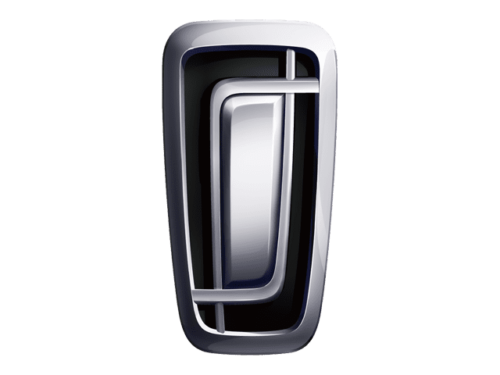 Another Chinese car brand, owned by the reputable FAW Group is Bestune, which was established in 2006 under the name Besturn. The brand produces affordable passenger vehicles, based on the Japanese Mazda models. By today the portfolio of the automaker is composed of 13 models, which include both sedans and crossovers. The company is mainly known in its country and manufactures its cars for the Chinese market.
Another Chinese car brand, owned by the reputable FAW Group is Bestune, which was established in 2006 under the name Besturn. The brand produces affordable passenger vehicles, based on the Japanese Mazda models. By today the portfolio of the automaker is composed of 13 models, which include both sedans and crossovers. The company is mainly known in its country and manufactures its cars for the Chinese market.


